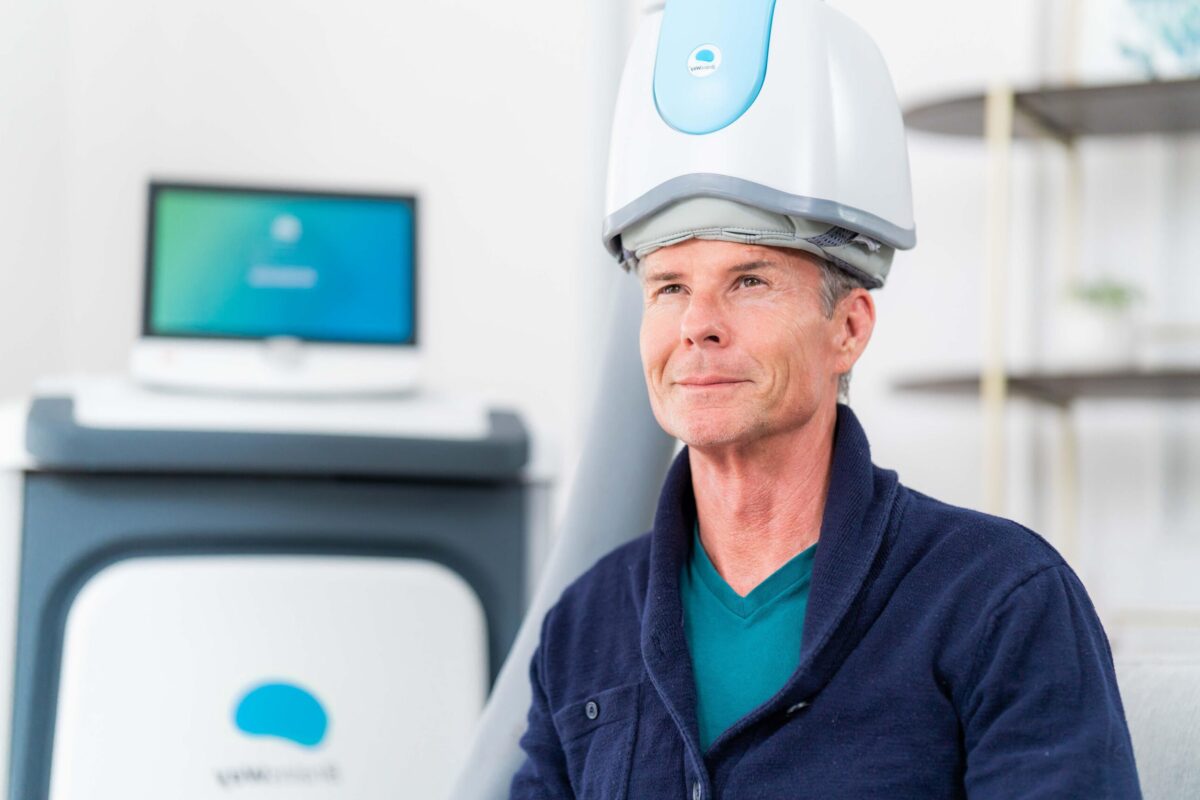Transcranial Magnetic Stimulation (TMS) therapy is one of the most innovative non-invasive treatments emerging in the field of mental health and neurological rehabilitation. As more individuals seek alternatives to traditional medications and invasive procedures, TMS has garnered attention for its ability to modulate brain activity and support recovery from a variety of conditions. At Axon Integrative Health, TMS therapy is a cornerstone of their commitment to offering state-of-the-art treatments tailored to individual needs. This comprehensive guide will explore what TMS therapy is, how it works, the conditions it can treat, its benefits and safety profile, and how it fits into a holistic treatment plan.
The Evolution of Brain Stimulation
Over the past few decades, advances in neuroscience have paved the way for treatments that directly influence brain function. TMS therapy emerged from decades of research into neuroplasticity—the brain’s ability to reorganize and form new neural connections. With a deep understanding that the brain is not a static organ but one that adapts and responds to targeted stimulation, scientists developed TMS as a way to activate specific brain regions without the need for surgical intervention. This breakthrough technology harnesses electromagnetic energy to impact neural circuits that have become dysregulated by conditions such as depression, anxiety, and neurological injuries.
What Exactly is TMS Therapy?
Transcranial Magnetic Stimulation is a non-invasive procedure that uses magnetic fields to induce electrical currents in specific parts of the brain. During a TMS session, a magnetic coil is placed near the scalp, delivering a series of rapid magnetic pulses. These pulses pass through the skull and stimulate targeted brain cells, influencing their activity. The procedure is performed on an outpatient basis, meaning there is no need for anesthesia or hospitalization, and patients can resume their normal activities immediately afterward.
The treatment is based on the concept that many mental health and neurological conditions are associated with altered patterns of brain activity. For instance, individuals with major depressive disorder often have underactivity in the prefrontal cortex, a region critical for mood regulation and decision-making. TMS therapy can “reactivate” these underperforming areas, helping to restore normal function and improve symptoms.
The Science Behind TMS
At its core, TMS therapy relies on the principles of electromagnetic induction. When a rapidly changing magnetic field is applied near the head, it generates small electrical currents within the underlying brain tissue. These currents can modify the activity of neurons—either enhancing or suppressing their firing patterns. The effect is highly localized; by carefully adjusting the coil’s position and the strength of the magnetic pulses, clinicians can target specific brain regions that are implicated in various disorders.
Research into TMS has shown that it promotes neuroplasticity, which is the brain’s ability to adapt in response to new stimuli. This is especially important in conditions where neural pathways have been damaged or altered. By stimulating the brain, TMS encourages the formation of new connections, which can lead to improvements in cognitive function, mood regulation, and overall neurological health.
The TMS Treatment Process
Before undergoing TMS therapy, patients typically participate in an extensive consultation process. During this evaluation, a medical professional reviews the patient’s medical history, symptoms, and previous treatments to determine if TMS is a suitable option. This step ensures that any potential contraindications, such as the presence of implanted medical devices or certain neurological conditions, are carefully considered.
Once cleared for treatment, the patient undergoes a series of TMS sessions. Each session generally lasts between 30 and 60 minutes. During the procedure, the patient sits comfortably in a specialized chair while a magnetic coil is positioned over the targeted brain region. The coil emits a series of magnetic pulses, which may be felt as a tapping or clicking sensation on the scalp. The treatment is completely non-invasive, and patients remain fully awake throughout the session. Most protocols involve daily sessions, typically five days a week, over a period of four to six weeks. The cumulative effect of these sessions is what leads to significant improvements in symptoms.
Conditions Treated with TMS Therapy
TMS therapy is versatile, offering benefits for a wide range of conditions. It is most well-known for its application in treating depression, particularly treatment-resistant depression, but its potential extends far beyond mood disorders.
One of the most compelling uses of TMS is in the treatment of anxiety disorders. Research indicates that TMS can help reduce symptoms of anxiety by modulating brain regions involved in the stress response. Axon Integrative Health features a detailed discussion on TMS for anxiety that explains how this therapy provides a non-invasive path to relief for those struggling with persistent worry and fear.
TMS has also shown promise in the rehabilitation of neurological injuries. Patients recovering from stroke, traumatic brain injury, or other forms of brain trauma often experience deficits in motor skills, cognition, and language. By targeting areas responsible for these functions, TMS can enhance neuroplasticity and support recovery. For instance, the TMS for stroke recovery approach at Axon Integrative Health has helped many patients regain movement and improve cognitive function after a stroke.
Individuals with multiple sclerosis (MS) also benefit from TMS therapy. MS is a chronic condition characterized by the immune system attacking the nervous system, leading to a range of symptoms including muscle weakness, fatigue, and cognitive impairment. TMS can help by stimulating neural pathways and reducing inflammation, which may alleviate some of these symptoms. More insights into this application can be found in the article on TMS for MS.
In addition, repetitive TMS is being explored as a treatment option for dementia. As cognitive decline progresses, stimulating specific brain regions may help slow down memory loss and enhance quality of life. Axon Integrative Health’s page on TMS for dementia provides further evidence of its potential in this area.
Other conditions, such as post-traumatic stress disorder (PTSD) and addiction, have also been the focus of TMS research. In patients with PTSD, TMS has been used to alleviate symptoms by calming overactive neural circuits associated with fear and anxiety. Similarly, for those struggling with addiction, TMS may reduce cravings and help restore balance in the brain’s reward pathways. Detailed discussions on these applications are available on Axon Integrative Health’s pages for TMS for PTSD and TMS for addiction.
Benefits and Safety of TMS Therapy
One of the primary advantages of TMS therapy is its safety profile. Since it is non-invasive and does not involve medications, the risk of systemic side effects is minimal. Most patients tolerate TMS well, with only minor side effects such as scalp discomfort or mild headaches reported in a small number of cases. Importantly, TMS does not require sedation or general anesthesia, which means patients can continue with their daily routines immediately after treatment.
Another significant benefit is the precision with which TMS can target brain regions. This specificity allows for a highly personalized treatment plan. Clinicians can adjust the intensity, frequency, and duration of magnetic pulses based on the patient’s unique condition and response to therapy. The ability to tailor treatment in this way is particularly beneficial for individuals who have not responded adequately to other forms of therapy.
TMS therapy also offers a non-pharmacological option for those who prefer to avoid or cannot tolerate medications. This is especially important for patients with complex medical histories or those who experience adverse reactions to traditional treatments. By offering a drug-free alternative, TMS opens new possibilities for those who might otherwise have limited options.
The Role of TMS in a Holistic Treatment Approach
At Axon Integrative Health, TMS therapy is not used in isolation. Instead, it forms an integral part of a broader, holistic treatment approach designed to optimize mental and neurological health. Clinicians work closely with patients to develop comprehensive care plans that may include psychotherapy, cognitive training, physical therapy, and nutritional counseling, among other interventions.
For example, a patient with depression may benefit from TMS to improve mood and cognitive function while simultaneously engaging in psychotherapy to address underlying emotional issues. Similarly, someone recovering from a stroke might receive TMS to stimulate motor recovery in combination with physical rehabilitation to rebuild strength and coordination. This multi-modal approach ensures that all aspects of a patient’s condition are addressed, leading to more robust and lasting improvements.
Integrating TMS with other therapies also enhances its overall effectiveness. Research suggests that combining TMS with behavioral or pharmacological interventions can lead to synergistic effects, where the combined benefits are greater than the sum of individual treatments. This integrated model is at the heart of Axon Integrative Health’s philosophy, ensuring that patients receive the most comprehensive and personalized care available.
Patient Experiences and Success Stories
Many patients who have undergone TMS therapy report profound improvements in their quality of life. For those with treatment-resistant depression, TMS has provided a renewed sense of hope when other treatments have failed. Patients describe feeling more energized, less burdened by their symptoms, and better able to engage with life. The non-invasive nature of TMS also means that many patients appreciate the convenience and minimal disruption to their daily routines.
Individuals with neurological conditions such as stroke, traumatic brain injury, and MS have experienced tangible benefits from TMS as well. Improvements in motor skills, cognitive function, and emotional stability have enabled many to return to activities they once thought were lost. These success stories underscore the transformative potential of TMS therapy and highlight its role as a critical component of modern neurological care.
Addressing Common Questions About TMS
Given its growing popularity, it is natural for patients to have questions about TMS therapy. One common question is whether the treatment is painful. Most patients report that the sensation during TMS is more akin to a light tapping or buzzing on the scalp, and any discomfort is temporary. Additionally, because TMS is non-invasive, there is no need for recovery time after sessions, and patients can typically resume their normal activities immediately.
Another frequently asked question concerns the duration of treatment and how long it takes to see results. The standard course of TMS therapy usually consists of multiple sessions over several weeks. Many patients begin to notice improvements in their symptoms within the first few weeks, with the full benefits becoming more apparent as the course of treatment progresses. However, as with any therapy, individual responses vary, and some patients may require additional sessions or maintenance treatments to sustain their progress.
Cost is also a concern for many individuals. While TMS therapy can be more expensive upfront compared to traditional medications, its targeted, long-lasting benefits and low side-effect profile make it a cost-effective option in the long run. Moreover, many insurance companies are increasingly covering TMS for conditions like depression, and Axon Integrative Health is committed to working with patients to ensure they receive the care they need.
The Future of TMS Therapy
The field of TMS therapy is continuously evolving. Ongoing research is exploring new stimulation protocols, improved targeting techniques, and the potential for TMS to treat a wider array of conditions. Advances in neuroimaging and personalized medicine are paving the way for even more precise applications of TMS, where treatment parameters can be tailored to an individual’s specific brain activity patterns. This progress holds tremendous promise for conditions that have long been challenging to treat, including various forms of mental illness and neurological disorders.
Future developments may also see TMS integrated with other cutting-edge technologies such as virtual reality, biofeedback, and advanced cognitive training programs. These combined approaches could further enhance neuroplasticity and lead to even greater improvements in patient outcomes. At Axon Integrative Health, staying at the forefront of these advancements is a top priority, ensuring that patients benefit from the latest breakthroughs in TMS therapy.
How to Get Started with TMS Therapy at Axon Integrative Health
If you are curious about TMS therapy and how it might help you or a loved one, Axon Integrative Health offers a comprehensive evaluation process to determine whether TMS is a suitable option. The journey begins with a detailed consultation during which a team of experienced clinicians reviews your medical history, symptoms, and treatment goals. This initial step is crucial in creating a personalized treatment plan that addresses your unique needs.
Once the evaluation is complete, you can begin your TMS therapy sessions in a comfortable, state-of-the-art outpatient setting. Throughout your treatment, your progress is closely monitored, and adjustments are made as needed to optimize the results. Whether you are struggling with depression, anxiety, neurological injuries, or other conditions, the team at Axon Integrative Health is dedicated to guiding you through every step of your recovery journey.
Real-World Applications of TMS Therapy
The versatility of TMS therapy is reflected in its wide range of applications. For instance, patients with traumatic brain injury have experienced improvements in cognitive function and motor skills, enabling them to regain independence and improve their quality of life. Similarly, individuals with neurodegenerative diseases like MS have found relief from symptoms such as fatigue and muscle weakness, thanks to the targeted stimulation provided by TMS.
In the realm of mental health, TMS has been a breakthrough for those with treatment-resistant depression and anxiety. By modulating brain activity, TMS helps reset neural pathways that are disrupted by chronic stress and negative thought patterns. Patients often report not only a reduction in symptoms but also a renewed sense of hope and a better overall outlook on life.
TMS therapy is also making inroads into the treatment of PTSD and addiction. The ability to alter brain circuits that are responsible for fear and craving responses opens up new avenues for managing conditions that have historically been challenging to treat. Each of these applications underscores the transformative potential of TMS and its capacity to improve lives in multiple dimensions.
Integrating TMS with Comprehensive Care
One of the hallmarks of Axon Integrative Health’s approach is the integration of TMS therapy into a broader, multidisciplinary treatment plan. Rather than relying on a single intervention, the clinic combines TMS with other therapies to address both the symptoms and underlying causes of various conditions. This holistic approach ensures that patients receive comprehensive care that is tailored to their individual needs.
For example, a patient with depression might benefit from TMS in conjunction with cognitive-behavioral therapy and nutritional counseling. Similarly, someone recovering from a stroke could see enhanced motor recovery by combining TMS with physical therapy and occupational rehabilitation. This integrative model not only improves treatment outcomes but also empowers patients to take an active role in their recovery.
The Importance of Personalized Treatment
Every individual’s brain is unique, and so is their response to TMS therapy. Personalization is key to achieving the best outcomes. At Axon Integrative Health, treatment plans are designed with this individuality in mind. Clinicians use a range of assessment tools, including neuroimaging and detailed cognitive evaluations, to pinpoint the specific areas of the brain that require stimulation. This data-driven approach allows for the customization of TMS parameters, such as the intensity, frequency, and duration of treatment, ensuring that each patient receives the most effective therapy possible.
Addressing Concerns and Misconceptions
Despite its growing popularity, some individuals remain skeptical about TMS therapy. Common concerns include the safety of the procedure, the potential for side effects, and the overall effectiveness of the treatment. It is important to note that TMS is a well-established therapy that has been rigorously tested in clinical trials and is approved by regulatory bodies such as the FDA for conditions like depression. The non-invasive nature of TMS means that it avoids many of the risks associated with invasive procedures or systemic medications.
Side effects, when they do occur, are generally mild and transient. Most patients experience only minor discomfort at the site of stimulation or a brief headache following a session. These effects typically resolve quickly and do not interfere with daily activities. With a proper evaluation and carefully monitored treatment protocol, TMS therapy is both safe and effective.
The Future of TMS Therapy and Neurostimulation
The future of TMS therapy is bright, with ongoing research continually uncovering new applications and refining treatment protocols. Innovations in technology, such as improved coil designs and real-time neurofeedback, are enhancing the precision and efficacy of TMS. As our understanding of the brain deepens, TMS may be used to treat an even broader range of conditions, from chronic pain and migraine to advanced neurodegenerative disorders.
Researchers are also exploring the potential of combining TMS with other neuromodulation techniques and digital therapies. These integrated approaches could further enhance neuroplasticity and offer more robust solutions for complex conditions. At Axon Integrative Health, staying at the cutting edge of these advancements is a priority, ensuring that patients have access to the most advanced, evidence-based treatments available.
Taking Charge of Your Health with TMS Therapy
For anyone struggling with mental health challenges or neurological conditions, TMS therapy represents a proactive, innovative option. By directly engaging the brain’s natural healing mechanisms, TMS offers a way to improve function, alleviate symptoms, and enhance quality of life without the burden of systemic side effects.
Axon Integrative Health is committed to empowering patients through personalized, compassionate care. Their multidisciplinary approach ensures that every aspect of a patient’s condition is addressed, providing a robust framework for recovery and well-being.
If you are ready to explore the transformative potential of TMS therapy, Axon Integrative Health is here to guide you. Whether you are dealing with depression, anxiety, PTSD, neurological injuries, or other conditions, TMS therapy may be the key to unlocking a better quality of life.
To learn more about the various applications of TMS therapy, consider exploring these resources:
- Discover how TMS is being used for dementia care by visiting Repetitive TMS: A Beacon of Hope for Dementia.
- Understand the role of TMS in managing multiple sclerosis in the guide on Unlocking the Potential of Transcranial Magnetic Stimulation for MS.
- Learn about how TMS can support recovery in brain injuries through A Comprehensive Guide to Transcranial Magnetic Stimulation for Traumatic Brain Injury.
- For those dealing with anxiety, explore the benefits detailed in Transcranial Magnetic Stimulation for Anxiety: A Non-Invasive Path to Relief.
- Patients recovering from stroke can gain insights from Transcranial Magnetic Stimulation for Stroke Recovery: A New Path to Rehabilitation.
- For individuals confronting addiction, learn about TMS for Addiction: A Promising New Frontier in Recovery.
- And for trauma survivors, read about TMS for PTSD: An Innovative Approach to Healing Trauma.
Transcranial Magnetic Stimulation therapy stands as a testament to the incredible advances in our understanding of the brain and its capacity for change. By leveraging the power of electromagnetic induction, TMS offers a unique and effective treatment option for those who have struggled with conventional therapies. Whether you are seeking relief from depression, anxiety, neurological injuries, or other conditions, TMS provides a pathway toward improved brain function and a better quality of life.
At Axon Integrative Health, the integration of TMS therapy into comprehensive, personalized care plans is transforming the lives of patients across a range of conditions. Their commitment to evidence-based practice and innovative treatment protocols ensures that every patient receives the highest standard of care. The non-invasive nature of TMS, coupled with its ability to precisely target dysfunctional brain regions, makes it an attractive option for those looking to enhance neuroplasticity and restore cognitive and emotional balance.
The future of TMS therapy is promising, with ongoing research continually expanding its applications and refining its techniques. As we learn more about the brain’s complexities, therapies like TMS will undoubtedly play an increasingly important role in the management of mental health and neurological conditions. By embracing these advances, healthcare providers can offer more effective, individualized treatment plans that address not just symptoms, but also the underlying neural mechanisms at work.
For anyone interested in exploring TMS therapy as a way to improve their mental or neurological health, the journey begins with an open mind and a willingness to embrace innovative solutions. The road to recovery is rarely linear, but with treatments like TMS, there is a renewed sense of hope and possibility. At Axon Integrative Health, the expert team is ready to guide you through every step of the process, from initial consultation to tailored treatment plans and ongoing support.
If you are ready to take the next step toward improved brain health, consider scheduling a consultation with Axon Integrative Health to learn how TMS therapy can benefit you. With personalized care, advanced technology, and a compassionate approach, Axon Integrative Health is dedicated to helping you unlock the potential of your brain. Embrace the future of neurological care and discover the transformative power of TMS therapy—your journey to a brighter, healthier future starts today.





